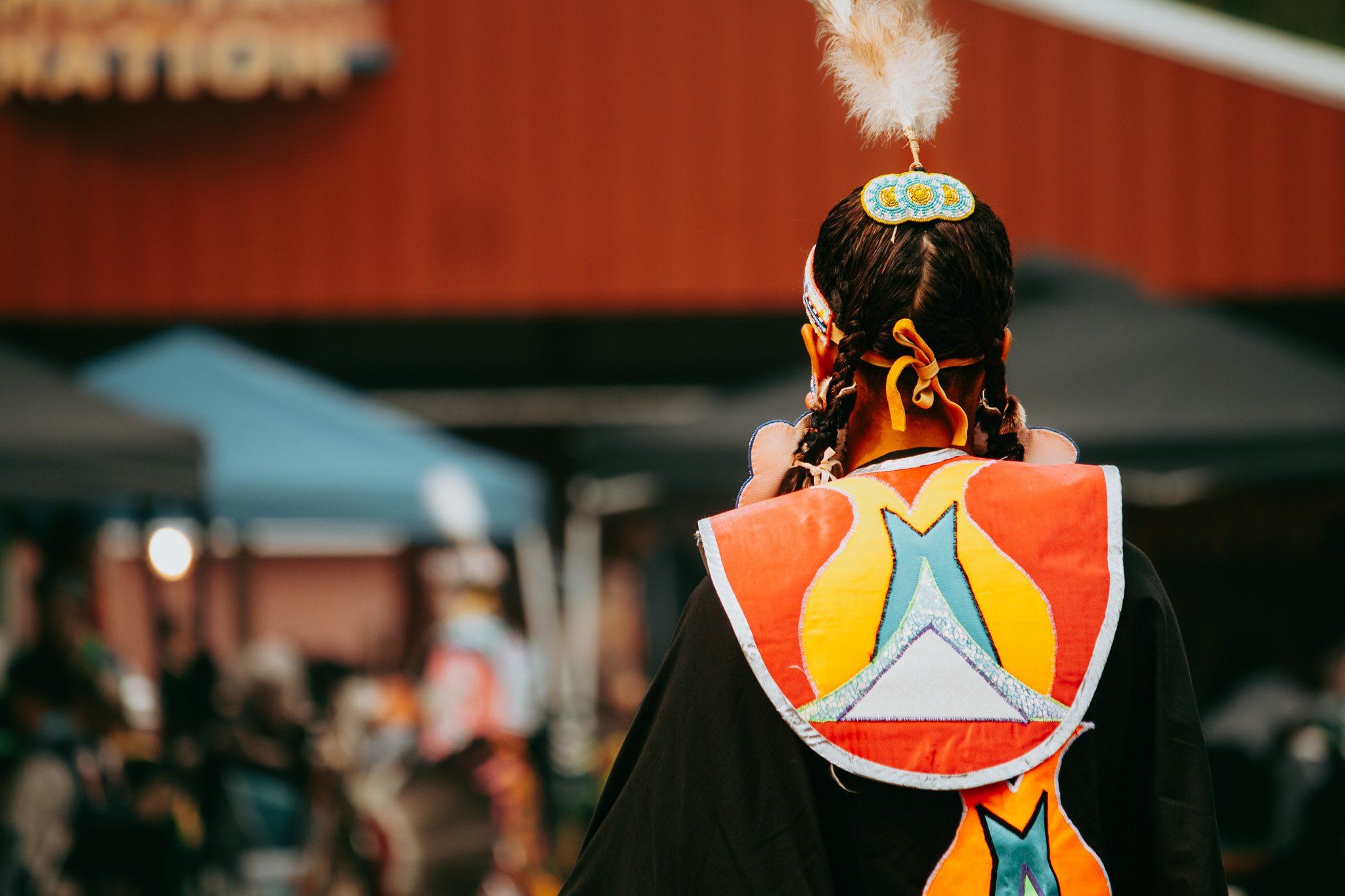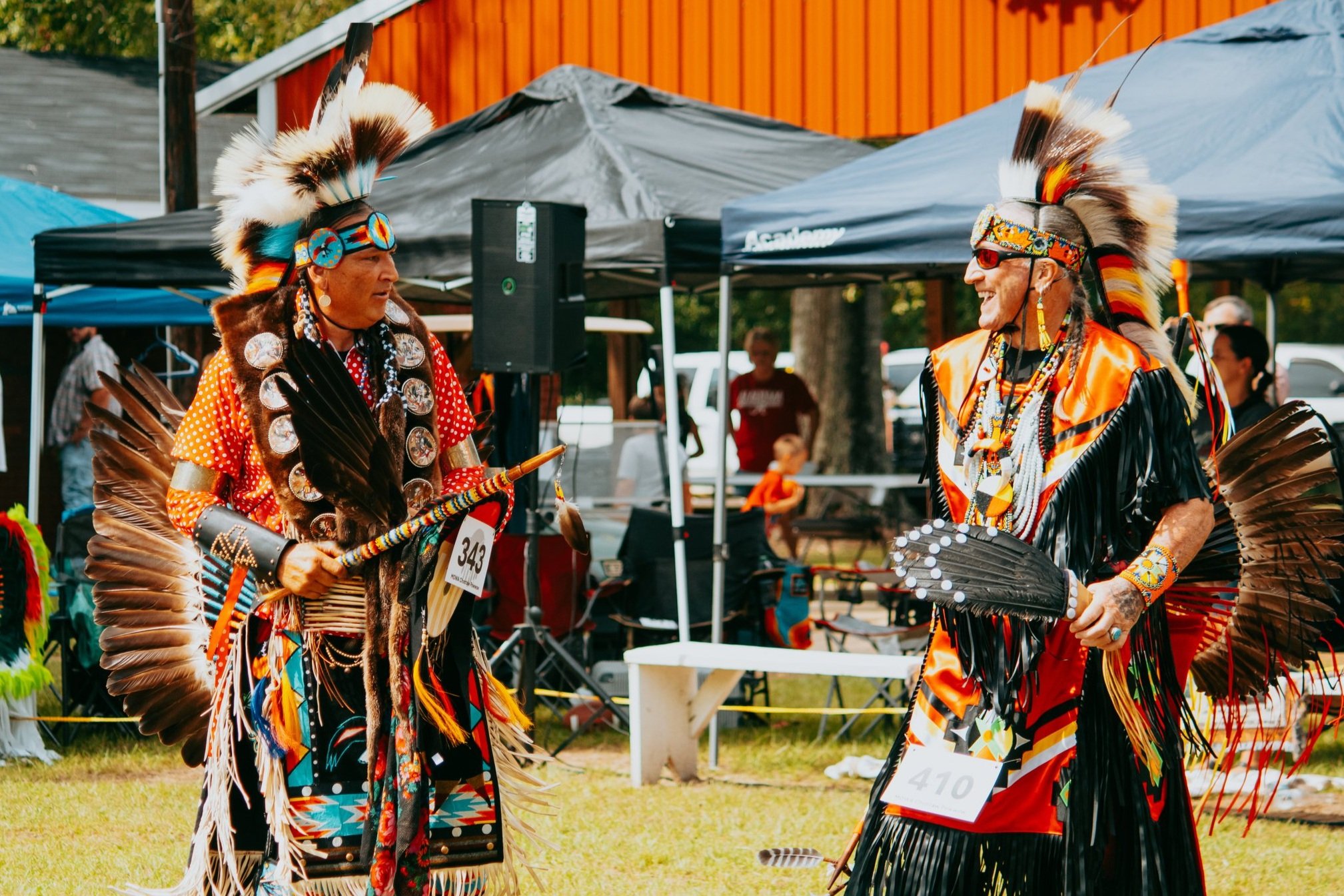
We are Choctaw
CHAHTA HAPIA HOKE
About the MOWA Band of Choctaw Indians
The MOWA Choctaw Band of Indians, a small yet resilient community, has called the lands of southern Alabama home for centuries, long before any modern map could trace their roots. Nestled between the towns of Citronelle, Mount Vernon, and McIntosh, the MOWA draw their name from the two counties they straddle—Mobile and Washington. Despite their deep historical presence and rich cultural heritage, their ongoing fight for recognition continues to limit the rights and resources they deserve as an Indigenous nation. Their fight has not gone unnoticed or without progress - in 1979 they were granted recognition by the State of Alabama as an Native American Tribe. Their story, shaped by survival, identity, and relentless advocacy, is not just a tale of a forgotten tribe but an urgent call for justice.
The ancestors of the MOWA Choctaw avoided the forced removal of the 1830s that sent tens of thousands of their kin on the brutal Trail of Tears. Hiding in the swamps and pine barrens of south Alabama, they managed to evade relocation, yet their isolation came at a cost. For over a century, the MOWA lived on the margins of society, treated as neither White nor Black and existing in a legal limbo that denied them basic rights and recognition. Though Alabama granted the MOWA Choctaw tribe state recognition in 1979, the federal government has consistently refused to recognize them as an official tribe, barring them from receiving critical services and protections that could lift many of their members out of poverty.
It is up to us—those who believe in justice and the preservation of Indigenous culture—to take action. Supporting the MOWA Choctaw in their fight for federal recognition is not only an act of solidarity but also an investment in their future. By standing with the MOWA, we can help ensure that their children have access to healthcare, education, and resources that allow them to thrive as a people, without losing the cultural roots that have sustained them for centuries.
Here’s how you can help:
Contact your representatives: Urge them to reintroduce and support the MOWA Band of Choctaw Indians Recognition Act. Lawmakers need to hear from constituents about the importance of this issue.
Spread awareness: Share the MOWA’s story on social media, within your community, and through local press. The more people know about their struggle, the harder it is for the government to ignore their cause.
Donate: Contributions to MOWA’s legal fund will support their ongoing efforts for recognition and help provide for essential services like healthcare, education, and housing for tribal members.
Attend their Pow Wow: Join the MOWA Choctaw during their annual Pow Wow, held on the first weekend of October. Celebrate their culture and stand in solidarity with their fight for justice.
The MOWA Choctaw have fought for survival for over 500 years, and their story is far from over. As Leon Taylor, a revered MOWA elder, once said, “Today, I am Choctaw. My mother was Choctaw. My grandfather was Choctaw. Tomorrow, I will still be Choctaw.” Their future—and their recognition—depends on the actions we take today. Let us stand with the MOWA in their quest for justice, for recognition, and for the rights they have long been denied.
“the strongest evidence of our American Indian ancestry is not found in written documents, it is found in our lives
- Chief Wilford “Longhair” Taylor
Today, around 3,600 MOWA Choctaw live in their traditional homeland, yet more than 80 percent remain below the poverty line. Despite these hardships, the MOWA continue to preserve their traditions, language, and community, while also making significant strides in education. Their fight for recognition is not just about the past but about their future—access to healthcare, education, and economic opportunities that federal recognition would provide.
The cultural heritage of the MOWA remains a vital part of their identity. They honor their ancestors through annual Pow Wows, traditional dances, handmade garments, and the preservation of stories that have been passed down for generations. Their resilience is woven into their everyday lives, where kinship remains central, and family ties are strengthened by ceremonies that have endured the test of time.
However, their struggle for federal recognition isn’t just a legal battle; it’s a fight for survival. While they are recognized by the State of Alabama, they are not on a federal level. The Bureau of Indian Affairs (BIA) has denied their petition for recognition, demanding an unrealistic level of documented historical proof—evidence that erases the very oral traditions and lived history the MOWA rely on. Despite repeated congressional efforts, no law has passed to grant them the recognition they deserve.
The Pow Wow is a powerful reminder of our shared history and struggle. It strengthens our bond and fosters a sense of community.
- Robert Weaver, President of American Indian Movement, Alabama Chapter






